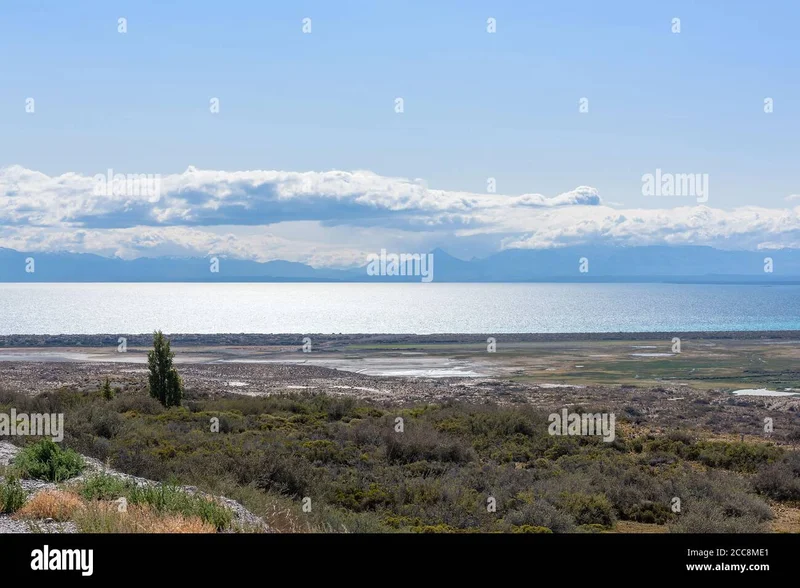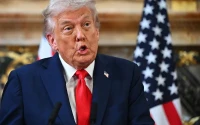$20 Billion for Buenos Aires: Is This a Bailout or a Political Bet?
The wire transfer is, for all intents and purposes, a done deal. Somewhere in the quiet, climate-controlled halls of the U.S. Treasury, a final signature has authorized a $20 billion financial lifeline for Argentina. The official justification is textbook economic stabilization: prop up a currency in freefall and support a reformist government. It’s a clean, simple narrative.
But the numbers rarely tell a simple story. When the beneficiary is President Javier Milei, a vocal ally of Donald Trump, the transaction stops looking like a standard sovereign bailout and starts looking like something else entirely. It’s a capital injection with a political variable that can’t be easily modeled. The question isn't just whether this money can save Argentina's economy; it's what, exactly, the United States is buying for its $20 billion.
The Anatomy of a Lifeline
Let’s first put the headline number in perspective. Twenty billion dollars is a substantial sum (roughly 4.5% of Argentina’s estimated GDP), but it’s being deployed against a backdrop of near-hyperinflation and decades of economic mismanagement. Is it a tourniquet or a Band-Aid? The provided documentation is conspicuously silent on the specifics. We see the total, but not the terms, the interest rate, the repayment schedule, or the covenants attached.
This lack of transparency is, in itself, a critical data point. Typically, a financial package of this magnitude comes with a thick binder of conditions—mandated spending cuts, specific inflation targets, and structural reform milestones. The fact that these details aren't being trumpeted suggests they may be either surprisingly lenient or uncomfortably political. We are told the goal is to support Milei’s agenda, but what are the quantifiable metrics for success? A stable peso-dollar exchange rate below a certain threshold for two fiscal quarters? An inflation rate under 50%—to be more exact, a monthly rate below 4%? Without a public benchmark, accountability becomes impossible.

It’s like co-signing a massive loan for a relative without ever seeing their budget or asking what they plan to do with the money. You’re not investing in a plan; you’re subsidizing a person. And that shifts the entire risk profile of the deal. What happens if Milei’s "shock therapy" reforms don't take hold? Does the Treasury double down with another tranche, or does it write off the initial $20 billion as the cost of a failed experiment? The silence on this front is deafening.
Pricing the Political Risk
This brings us to the core of the transaction: the political dimension. The explicit mention of Milei as a Trump ally isn't just a piece of trivia; it’s the variable that likely explains the sparse economic conditionality. I’ve analyzed dozens of sovereign debt restructurings and IMF packages, and the lack of explicit, publicly-stated economic covenants in a deal of this size is genuinely puzzling. It strongly suggests the primary collateral here isn't a promise of fiscal discipline, but an expectation of continued political loyalty.
This bailout is best understood not through the lens of international finance, but through the framework of venture capital. The U.S. Treasury isn't acting as a lender of last resort. It's acting as a VC fund making a high-risk, pre-IPO investment in a volatile startup: "Milei's Argentina." The product is a brand of libertarian, pro-American governance, and this $20 billion is the seed funding intended to get it through the initial cash-burn phase. The bet is that this model, if successful, will yield significant geopolitical returns for the U.S. in a region increasingly courted by China.
The problem with this analogy, of course, is that taxpayers aren't venture capitalists. They aren’t supposed to be taking high-risk flyers on ideological experiments abroad. The due diligence on this "investment" appears to hinge more on political alignment than on a rigorous stress test of Argentina's balance sheet. What is the contingency plan if the political leadership changes in either Washington or Buenos Aires? A financial agreement built on a personal alliance is as fragile as the alliance itself. The risk isn't just default; it's that the entire strategic justification for the deal could evaporate after the next election cycle, leaving taxpayers holding a $20 billion note backed by little more than a handshake.
A High-Stakes Wager
Ultimately, this isn't a bailout. It's a wager. The Treasury is betting $20 billion that Javier Milei can do what dozens of his predecessors could not: stabilize the Argentine economy. But it’s also making a larger, more implicit bet that his political allegiance is a strategic asset worth that price. The financial calculus is secondary to the geopolitical one. The return on this investment won't be measured in basis points or currency reserves, but in diplomatic alignment and influence. And when you strip away the language of finance, that makes this one of the most audacious, and riskiest, political trades of the decade.









